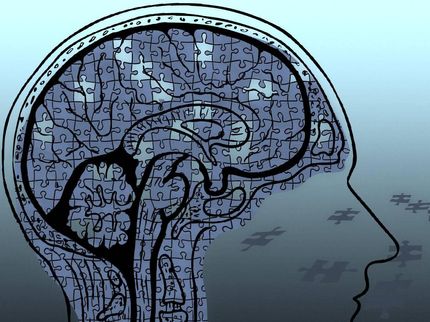Physical activity and fitness – an effective approach against dementia?
A new therapeutic approach to improve cognitive impairment might lower the risk for dementia.

HoliHo, pixabay.com, CC0
By 2030, about 74 million people will be diagnosed with dementia – a number that experts have estimated because of demographic changes. Previous studies have identified that physical inactivity during midlife is a major but modifiable risk factor for dementia.
First signs of cognitive decline often appear prior to the onset of dementia, and this stage presents the opportunity to identify and evaluate therapeutic approaches. This is the aim of the NeuroExercise group at the German Sport University analysing the relationship between cognitive decline, physical activity and physical fitness. Results might offer insight into the necessity of physical activity to prevent age related cognitive decline and dementia.
121 participants with early signs of cognitive impairment were recruited and - based on their cognitive status, ranging from subjective cognitive impairment, early mild cognitive impairment to late mild cognitive impairment - randomly stratified into three groups. Physical activity was assessed with a questionnaire and an activity monitor. Additionally, physical fitness was determined with an incremental exercise test.
The results are promising: Participants with the worst cognitive function, were also less physically active and fit than the members of the other groups. Furthermore, a positive correlation between physical fitness and cognitive function was found: the fitter the participants were, the better their cognitive performance was. This could be shown for the first time across participants in the earliest stages of dementia.
These results indicate that an increase in physical activity and fitness might present an effective treatment approach to improve or at least to slow cognitive impairment. To verify these findings will be the next step for the researchers.
Original publication
Stuckenschneider, T., Askew, C.D., Ruediger, S., Polidori, C. M., Abeln, V., Vogt, T., Krome, A., Olde Rikkert, M., Lawlor, B. & Schneider, S. on behalf of the NeuroExercise Study Group. (2018). Cardiorespiratory Fitness and Cognitive Function are Positively Related Among Participants with Mild and Subjective Cognitive Impairment. Journal of Alzheimer's Disease, preprint
Original publication
Stuckenschneider, T., Askew, C.D., Ruediger, S., Polidori, C. M., Abeln, V., Vogt, T., Krome, A., Olde Rikkert, M., Lawlor, B. & Schneider, S. on behalf of the NeuroExercise Study Group. (2018). Cardiorespiratory Fitness and Cognitive Function are Positively Related Among Participants with Mild and Subjective Cognitive Impairment. Journal of Alzheimer's Disease, preprint
Organizations
Other news from the department science

Get the life science industry in your inbox
By submitting this form you agree that LUMITOS AG will send you the newsletter(s) selected above by email. Your data will not be passed on to third parties. Your data will be stored and processed in accordance with our data protection regulations. LUMITOS may contact you by email for the purpose of advertising or market and opinion surveys. You can revoke your consent at any time without giving reasons to LUMITOS AG, Ernst-Augustin-Str. 2, 12489 Berlin, Germany or by e-mail at revoke@lumitos.com with effect for the future. In addition, each email contains a link to unsubscribe from the corresponding newsletter.



















































